Eleanor Catton is most recently the author of The Luminaries, the winner of this year’s Booker Prize.
Author: Eleanor Catton
Listen: Play in new window | Download
Subjects Discussed: The rumor of John Barth writing Giles Goat-Boy from a chart with ideas taken from Joseph Campbell’s The Hero with a Thousand Faces, the tasks of a hero, the benefits of an overly planned structure, astrological charts, the creative possibilities from the pressure of adhering to a pattern, characters and temperaments that align to the Zodiac and the planets, tonal restrictions vs. hard plot restrictions, deliberate choice, the planned 1865 trackback option in The Luminaries, the tension between the chapters and the chapter descriptions, whether description is enough to get inside the heads of characters, fictional characters who bash in heads, deciding what to reveal to the reader, controlling the reader’s intelligence, manipulating the reader’s desire to know, literary writers who flock to genre to attract more readers without respecting it, children as the ideal readers, Catton’s affinity for children’s literature, avoiding self-indulgent prose, style within The Rehearsal, style vs. voice, the proper ways to address social injustice through fiction, fiction as a way of animating questions in an affectionate theater, working with hard antecedents, writing a novel that is open with reader expectations, the many disgraces foisted upon Crosbie Wells’s corpse, Francis Carver’s monstrous nature, character expectations, when the reader doesn’t know how to feel about a character, fretting over structural inevitability, dastardly duos in adventure stories, the menace inside the law as reflected through Shepard, Wilkie Collins’s The Woman in White, Gilbert Osmond in The Portrait of a Lady as inspiration for Catton, being curious about the seed of corruption within an enemy, the need for a human quality within a villain, the relative nature of happy endings, sympathizing with all characters, why much of the digging in The Luminaries is offstage, Gabriel Read and Gabriel’s Gully, avoiding historical cliches and the “greatest hits,” why reading historical newspapers may be the best form of research for a fiction writer, not respecting the Forrest Gump approach to memorializing past events, how human lives are really shaped, the real role of history upon everyday life, Rob Ford’s crack cocaine use, the New York mayoral race, dashing out “damned,” how the novel’s structure allowed Catton to postpone Anna Wetherell’s fate, mid-1860s newspapers as the Internet of their day, learning how 19th century courtroom systems work exclusively from newspapers, the fluidity of money as a way to drive story, concealing gold in women’s clothing as a tax dodge, the influence of 20th century crime writing on The Luminaries, James M. Cain, Dashiell Hammett, being very particular about characters speak, omniscient third person as a way of telling a story falling out of fashion in contemporary literature, the limitations of present tense, Catton’s fascination with adverbs, Henry James’s sentences, how adverbs expose the tension between the objective and the subjective, creative writing workshops and adverbs, Catton’s correspondence with Joan Fleming, confronting cowardice, multicultural characters in the 19th century, The Walking Dead‘s terrible use of African-American characters, Maori culture in New Zealand, New Zealand’s idea of political correctness, the Cantonese immigration during the Otago Gold Rush, the difficulties of mimicking life 150 years later, the Chinese Exclusion Act, comparing the racist histories of the U.S. and New Zealand, the relationship between capitalism and astrology, the lowest form of swindle as the only way to survive, profit vs. luck and associated assumptions about each, the strange notion of the self-made man, the seductive promise of total reinvention, mantras that belong in the civil world, Douglas Hofstadter’s Gödel, Escher, Bach, how ideas and objects call attention to themselves in the liminal space of fiction, strange loops, Shakespeare and Joyce as the fourth horseman in Hofstadter’s equation, the beauty of closed loop systems, the golden ratio and its associations with beauty, astrology and the circle of fifths, Martin Buber’s I and Thou, philosophical efforts to understand being in love, selfhood tangled up with feelings for others and the golden ratio, the golden spiral within The Luminaries, writing chapters that are half the size as the preceding ones, and being jolted into a creative space by getting painted into a corner.
EXCERPT FROM SHOW:
Catton: The way that it works in The Luminaries is that all of the characters are each representative of one of the figures in the Zodiac. So you’ve got twelve signs of the Zodiac, first of all. Twelve constellations. And then you’ve got seven planets. Put quote marks around planets because that includes the Sun and the Moon. It’s really the bodies that are visible to the naked eye in the sky. And the ways in which these characters — they are characters in the book — move and interact with one another and influence one another is all patterned on actual star charts. So the book begins, for example, the Sun and Capricorn. And the character who is at this point playing the archetype of the Sun is interacting in this part of the book with the character whose temperament conforms loosely to a Capricorn temperament. And so in a way I was restricted by the twelve days on which the book appears. The planetary placements were fixed for those twelve days. And I had to make the plot be interesting and meaningful around those positions.
Correspondent: You had tonal restrictions as opposed to hard plot restrictions.
Catton: Right. Oh yeah, I like that! But on the other hand, of course, I chose those days quite deliberately. And long before I’d even written anything, I’d been studying the movement of the planets across the twelve signs of the Zodiac over the course of a few years. So I kind of knew which year was going to be suitable for narrative purposes.
Correspondent: Okay. So you knew you could backtrack to 1865 if you needed to.
Catton: Right.
Correspondent: Or did you plan on that in advance?
Catton: I think that that was there from quite early on, that movement back. Yeah. Just because the book’s a murder mystery. It begins just after a potential murder. A possible murder. And as most murder mysteries do, it ends up going forward in order to track back to return the reader to what they really have been wanting to see from the very beginning.
Correspondent: Well, there’s also this fascinating tension near the end of the book where it flits between 1866 and 1865 and back again. And then you have this tension between the chapter descriptions and the chapters themselves. I mean, I was reading the descriptions and I was thinking, “Well, this could be pulled from some astrological newspaper column or something.” But while there are numerous questions that you answer, some such as the identity of a murderer — I’m going to do my best not to give anything away — remain very murky. There’s this sense that no amount of description at this point in the book can be adequate enough to get inside the heads of these characters. So I’m wondering, first of all, do you actually know everything that happened? And, second, did you set any priorities on what you wanted to reveal to the reader and what you didn’t out of curiosity? I mean, how much of this did you map?
Catton: That’s interesting. I’m pretty sure I know everything that happening.
Correspondent: Including the head bashing.
Catton: Yes. I think we probably couldn’t talk about that on air.
Correspondent: (laughs)
Catton: For fear of spoilers.
Correspondent: How did you decide what to reveal to the reader?
Catton: Well, I think that in writing mystery, my experience of it was almost like being the conductor of an orchestra when you’ve got everybody’s stave in front of you on this big master sheet. And I realized in the writing of the book that I needed to control the reader’s intelligence in quite a different way than as usual, I suppose.
Correspondent: Control the reader’s intelligence. How so? I mean, what are we talking here?
Catton: I suppose I’m using the word “intelligence” in the 19th century sense. In terms of just knowledge.
Correspondent: That would be quite a feat. And what do you do besides pulling rabbits out of your hat?
Catton: (laughs) If you imagine these parallel tracks of music going along, on the one hand, you’ve got what the reader knows. On the next line down, you’ve got what the reader wants to know, which you can manipulate by feeding them various teasers and coaxings and so on and so forth. Then you’ve got obviously what you know, but what the reader doesn’t yet know. And that’s shaping your narrative quite a bit as well. Because you’re putting into the narrative various foreshadowings and clues that then will be exciting on a second reading for the reader, but probably not meaningful on a first reading. And last of all, you’ve got the most exciting track, which is all of the things that the reader doesn’t yet know that they want to know, but you’re going to try to make them want to know it.
Correspondent: So how do you know what the reader wants to know? I mean, even if you are the most fluid and variegated reader on this planet, what you think the reader’s going to want to know, what is going to be of interest to you is not necessarily going to be of interest to another reader. Is there any reliable way to zero the needle for the average reader here at all? Do you have a considerable army of readers who can help you pinpoint that particular desire?
Catton: I think that mystery is actually a genre that is pretty fundamental. We all want to know solutions to things. We all want closure. We all want the answer. And what a mystery novel does is open up a whole bunch of mysteries at the very beginning in a way that is seductive, hopefully, if the book’s engaging, and then solves those mysteries in a way that comes maybe a little bit before or a little bit after what the reader is going to be guessing ahead to. So when I talk about what the reader wants to know, it has to do with engaging with the mystery. In The Luminaries, for example, when the book begins, a prostitute in the town is discovered lying drugged in the middle of the….
Correspondent: Anna Wetherell, yeah.
Catton: Right. When she wakes up in jail, she’s arrested for public insentience. And when she wakes up in jail, she discovers that an enormous fortune has been stitched into the…the…
Correspondent: The insides of her gown.
Catton: Into her clothing. Into her gown. And so that’s a mystery. And I’m just trusting as a writer that the reader will think, “Well, that’s a bit curious. That hasn’t happened to me. I wonder what the reason for that is.”
Correspondent: Well, this is interesting. Because there has been this interesting critical tension among literary types where a lot of them have gravitated towards genre in an effort to get readers. And some genre readers get understandably huffy. Because a lot of these authors don’t have the understanding of genre. And yet at the same time, you have interesting books such as Hari Kunzru’s Gods Without Men and your book that toy with the notion of genre while simultaneously respecting it. And I’m wondering. Is genre for you the best way to contend with what a reader covets in terms of mystery? In terms of how you can even advance the literary form? If you have a massive framework, as you do with the astrological charts, is that enough to transcend genre and produce a completely new form of literature?
Catton: Ah! That’s an interesting thought. Well, I would really like to see a breakdown between the categories of genre and literary fiction. I think that genre fiction is nearly always lively and literary fiction at its worst is not lively at all. I mean, at its best, it’s many things that genre fiction is not or tends not to be. But I take a lot of my inspiration actually from children’s literature. I see every work of literature for children as a mystery. I think that they have much in common with all kinds of genre fiction actually, but engaging with very, very weighty philosophical issues. The problem of growing up. The problem of feeling betrayed in growing up.
Correspondent: Which children are quite receptive to as well.
Catton: Right.
Correspondent: In many senses, they are the best readers.
Catton: Right. Well, I agree. And that’s the other thing that I really like about children’s literature. There’s no room for showboating or for self-indulgence on the writer’s part. Because the children will just see it coming a mile away and they won’t read the book.
Correspondent: Aha. So you are trying to get away from anything you see as self-indulgence. That any kind of “self-indulgent” impulse would be in the framework itself, in the structure. That’s where you get it out and you are able to use that to woo the reader while simultaneously avoiding the pretentious card. Is that safe to say?
Catton: Yeah, I think so. I mean, I think a book should be for the reader’s pleasure and pain, for the reader’s experience. And it’s not a self-aggrandizing exercise. When I read, the most powerful responses I have to works of literature are always to the characters and to the dramas that are happening within the story. I don’t think I’ve ever had a fictional experience where I’ve read a novel and thought, “Gosh, this novelist. I really want to be like this novelist.” (laughs)
Correspondent: So you don’t really see voice, at least from the author’s standpoint, as a qualifier for quality fiction? Or what? How do you respond to a voice-y writer like Will Self or Anthony Burgess or someone who you just know that it’s definitely going to be this book? Or do you feel that style needs to be shaken up with each new project? David Mitchell certainly feels that way.
Catton: I would answer differently to the style question. I’m frequently a little bit befuddled by the distinction between voice and style actually, as it’s frequently made. I don’t know. There’s something about the ventriloquism or the supposed ventriloquism of voice that bothers me in a way. I don’t know. I think there’s probably a lot of voice-driven novels that I can think of that I adore.
Correspondent: Is it parody that you find to be a cheap trick? I mean, how do you transcend that? I mean, you’re also, in this case, mimicking a Victorian novel to a large degree. Even in The Rehearsal, you’re employing stage directions to convey this very strange tension between the two schools. So style is definitely something for you. I don’t think it’s ventriloquism. But I’m wondering how is it new. How do you make it new? How do you make it new enough to satisfy not falling for the ventriloquist racket that you are identifying here?
Catton: Right. Well, I think what originality is is the bringing together of two elements that don’t belong together at the most atomic level. It’s just putting things — it’s making connections that don’t yet exist. Between words, between ideas, between approaches. And so I think that individual styles always come out of some fusion of two or more unlikely elements. Bringing things into a context where they’re not germane.
Correspondent: Conceptual blending. Endless association. I mean, what would you describe as an acceptable minimum form of association for you that would satisfy you? That would say, “Well, okay, I am doing something different. I’m venturing out into the fields and I am going to find a different caribou.”
Catton: (laughs) I don’t really know what I want to do next. It’s really important to me not to repeat myself. And so I’ve kind of sworn…
Correspondent: I’ve counted the number of “the”s you’ve used in this entire conversation. I’m keeping a running tab in my head right now.
Catton: (laughs) I’ve made myself two pacts. One is that I never want to write two books that are similar over the course of my career in the future. And the second thing is that I never want to write a novel about a writer.
Correspondent: (laughs) Or an artist. Or a musician. Or that kind of thing. The stand-in writer.
Catton: Right.
Correspondent: Well, you know, you came kind of close there with The Rehearsal. Because you do have a number of students who are studying acting and studying music.
Catton: That’s true.
Correspondent: I think of the sax teacher in that. And I think of some of the weird instructions. “You must go ahead and go out into the world and live and have rampant sex with people in order to actually physically understand your body.” And that notion is almost weirdly didactic. Do you think you got a lot of the explicit morality stated by characters out with that novel? And how have you avoided it since?
Catton: Well, I think yes. Because so much of The Rehearsal takes place in a stage environment or a theatrical space, I had no access to their inner lives really. Because I was wanting to play with the idea of performance and what could be seen and assumed and put on. And so what that meant was that the characters would have to speak very declaratively. They had to conjure the reality that they were going to inhabit as actors in the same way as all theater that is not reliant on a realistic looking set always does that and has done that from the very beginning. And so I think, partly for that reason, the book has a very didactic tie-in. And I think the other thing that partly explains that thread in the book is that I was much younger when I wrote it and much more agonistic, I think, in the way that I was thinking. And the injustices of the world, particularly around feminist performance theory and lesbian feminist performance theory, that was really driving my thinking at that time — the injustices were just, I was feeling them and being enraged by them in quite a different way than I feel now. I’ve matured a bit, I suppose. My thinking’s a little more meditative and a little less reactionary.
Correspondent: How do you deal with the dawning sense — especially in our present world as it continues to go interestingly into the toilet, frighteningly so — how do you deal with having to take on, I suppose, a partial responsibility to reflect the social and the political world around us? I mean, we’re trying to make sense of truth and reality through fiction. So if you got a lot of this out with the first one, as I suspect that you did, how does this trick of trying to find an original style by vivid association, multifarious association, allow you to grapple with the world? I mean, is it safe to say right now that you’re going to take this on as an additional responsibility at all? Or you’re going to try to reconcile this? Or is this just not what you think a novelist should do? I’m just curious.
Catton: Well, I think that it’s absolutely vital that a novelist believes what her novel believes. I think that fiction is curiously revealing. I’ve learned this many times over as a creative writing teacher. It’s like reading somebody’s dreams essentially. You’re really getting a window, a very clear window into all sorts of values and prejudices and biases that the writer has. Even if they’re not aware of the fact that they’re displaying them, they’re usually there to be reared. And so I think that you have to be able to stand behind the consciousness of your work and have to have grappled in some meaningful way with the ideas that are driving the work’s project, I suppose. But as to what those questions might be and what those ideas might be, I think that that’s up to anybody. There are mysteries that have defined the human condition since we were humans. And we haven’t figured out the answers to them. There’s no reason why somebody can’t today write a novel which asks the question, “What’s going to happen when we die?” Because nobody knows the answer to that question. And asking that question in the modern world is going to yield quite a different struggle than asking it thirty or forty years ago. I think that it’s really important to be an idealist as a fiction writer and to know what those ideals are and to be able to see how they are transmitted into the work. Not necessarily at all in a didactic way. Quite the opposite of that. But in an animated way, I suppose.
Correspondent: If you are an idealist, if a novel is an assay so to speak, the ideas and the consciousness that you have thought about, that you have put into place, will be strong enough to evolve to a point where it will possibly be able to inhabit some of the concerns that I have just mentioned in my last question and to simultaneously avoid the great curse of didacticism. Is that safe to say?
Catton: Yeah. I think so, if you’re really truly struggling with something. Because you won’t be content with an answer. You’ll only be content with a question.
(Loops for this program provided by ancoral, proecliptix, deciBel, LoonyGoon1, and ebaby8119.)
(Photo: Robert Catto)
The Bat Segundo Show #524: Eleanor Catton (Download MP3)
This text will be replaced


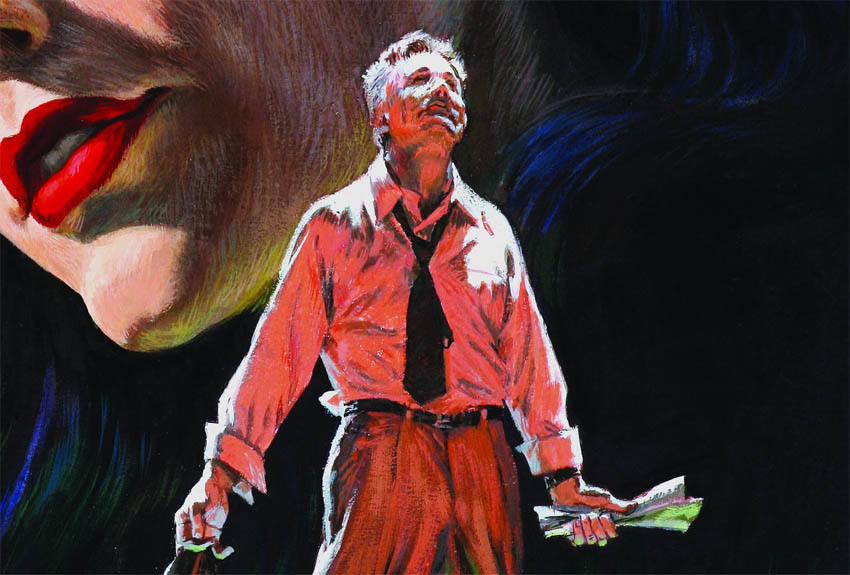
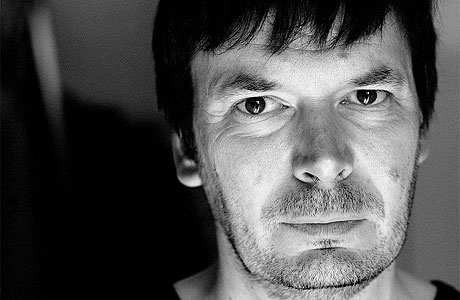


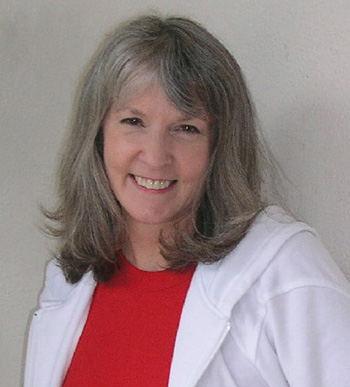 Grafton: I don’t like to repel readers. I mean, we’re always dealing with homicide and violence of this sort, which is difficult enough. I don’t want to rub that in my reader’s face.
Grafton: I don’t like to repel readers. I mean, we’re always dealing with homicide and violence of this sort, which is difficult enough. I don’t want to rub that in my reader’s face.

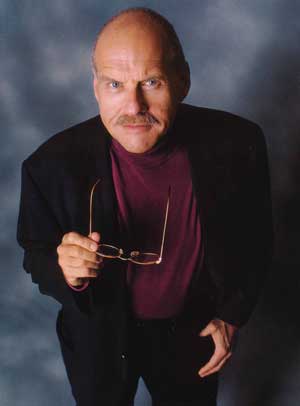 Correspondent: You mentioned that you had attempted memoir before.
Correspondent: You mentioned that you had attempted memoir before.

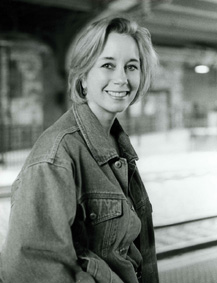 Correspondent: You have, of course, Callie-ope — Calliope — and Cassandra. I read Janet Maslin’s review in the New York Times and she seemed to be really hung up on the notion that this represented some Greek mythology. But when I read your book, I immediately said to myself, “Oh! Well, this is a very funny red herring to throw the reader off.” Just as the dates that precede each particular section have no significant meaning, or very little meaning, on the narrative. And I’m wondering if little red herrings along these lines are intended to either see if the critics of the Janet Maslin streak are going to latch onto them or whether they represent a way for you to obtain this level of “just doing it” that you just described in your last answer.
Correspondent: You have, of course, Callie-ope — Calliope — and Cassandra. I read Janet Maslin’s review in the New York Times and she seemed to be really hung up on the notion that this represented some Greek mythology. But when I read your book, I immediately said to myself, “Oh! Well, this is a very funny red herring to throw the reader off.” Just as the dates that precede each particular section have no significant meaning, or very little meaning, on the narrative. And I’m wondering if little red herrings along these lines are intended to either see if the critics of the Janet Maslin streak are going to latch onto them or whether they represent a way for you to obtain this level of “just doing it” that you just described in your last answer.